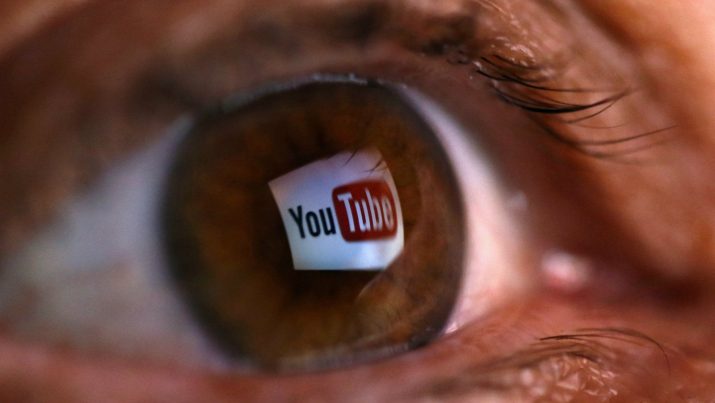
YouTube is not safe for your children: The video platform “data mines” information from its young users
Wednesday, May 02, 2018 by Jayson Veley
http://www.tyranny.news/2018-05-02-youtube-is-not-safe-for-your-children-data-mines-information-from-young-users.html

Facebook has been at the center of controversy lately for, among other things, acquiring the personal data of users without their knowledge or consent and then distributing that information to third parties. But as it turns out, Mark Zuckerberg and his team aren’t the only ones making headlines for illegal data-mining.
According to multiple advocacy groups, the popular video sharing platform YouTube (which is owned by Google) is now illegally collecting information from some of its youngest users in order to explicitly target them for advertising. These groups (twenty in total) filed an official complaint last month urging the Federal Trade Commission (FTC) to investigate YouTube for violating the Child Online Privacy Protection Act (COPPA). By law, companies must notify parents and get their consent before collecting data from children under the age of 13. According to the complaint filed with the FTC, YouTube illegally collected data on 23 million children over “a period of years,” and as a result, the advocacy groups are demanding that YouTube pay up to $41, 484 per violation.
“I think it’s worrying to know that all this data are being collected on children younger than [age] 13, and I hope that now that there is heightened awareness of the extent to which data are being mined,” said Dr. Shaheen Shariff, professor of integrated studies in education at McGill University in Quebec, in an email sent to LifeZette last month. “YouTube, Google, Facebook and others will be held to account, although we all know it will be challenging to regulate. Nonetheless, it was time that people became more vigilant of what they post online – especially when kids are involved.”
The professor went on to say that the primary concern regarding the data collection of young children is twofold: Who is acquiring this information, and what do they plan on doing with it? For example, if the data somehow finds its way into the hands of a child sexual predator, then the consequences could be absolutely devastating, not just for the child but for the entire family. (Related: Android devices secretly funnel your private location data to Google even if you have that setting turned off.)
Unfortunately, this isn’t the first time that Google has been accused of spying and collecting information from users without their knowledge or consent. As reported by CNN last October: “A major flaw has been detected in the newly-unveiled Google Home Mini speaker that allows it to secretly record conversations without users knowing.”
The bug was first discovered by Android Police tech blogger and founder Artem Russakovskii, who, after using the device, visited his Google activity account page and discovered that it was filled with audio clips that were recorded without his knowledge or consent, inside of his own home. Typically, the Google Home devices are only activated when the user says the words “OK Google,” but according to Russakovskii, the audio recordings occurred even at times when the phrase wasn’t used.
“My Google Home Mini was inadvertently spying on me 24/7 due to a hardware flaw,” he wrote. It wasn’t long before a spokesperson for Google confirmed the issue to CNN Tech that, indeed, there was a bug in the devices that allowed them to record audio without the user even knowing. (Related: Amazon’s Alexa can listen for more than just its name even while it is in sleep mode.)
Frankly, it is long past time for Congress to act to ensure that this sort of data collection from YouTube, Google and other platforms is not allowed to continue. Privacy violations stemming from Silicon Valley are starting to become all too common, and unless further action is taken to limit their data collection methods, then it is bound to get worse in the years to come.
See REAL.video for an upcoming YouTube alternative that protects free speech and doesn’t spy on its users.
Sources include:
Tagged Under: Tags: Big Brother, child safety, children, computing, ftc, Glitch, Google, personal privacy, privacy, privacy watch, Social media, spying, surveillance, video site, YouTube





